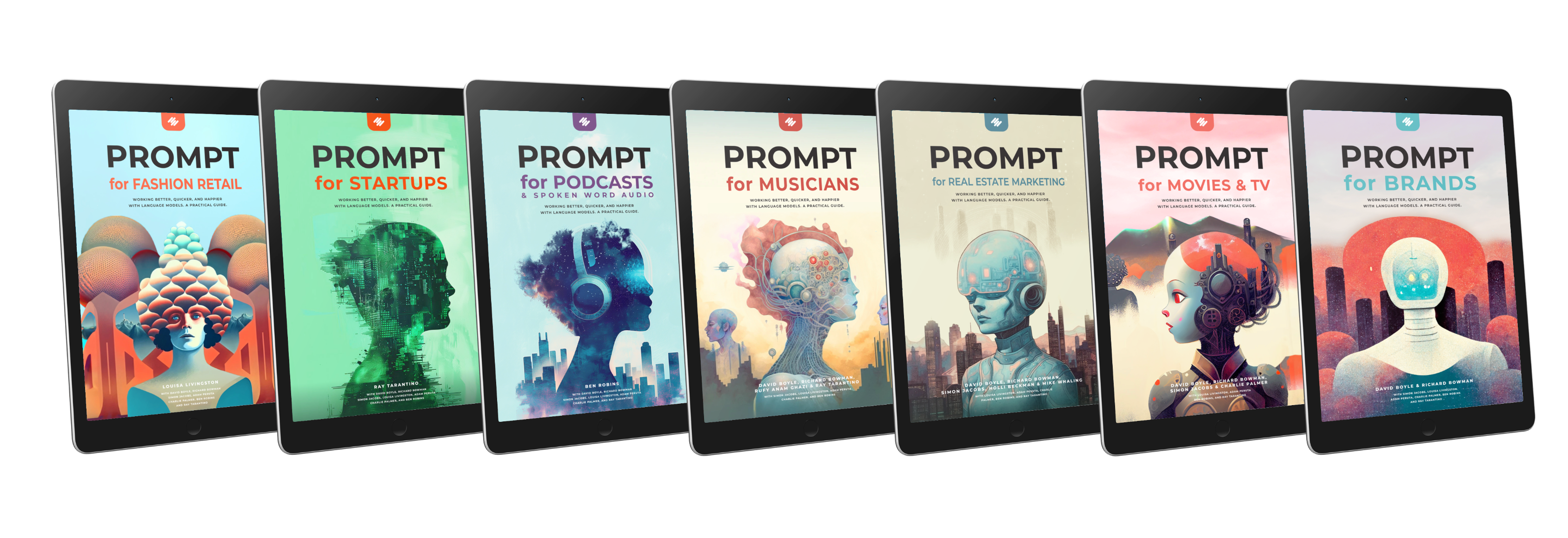In a talk today for the Society for Existential Analysis, David explored the implications of AI on existential psychotherapists.
Here's a quick AI summary. Shout if you'd like the slides or the recording!
Overview
David explored the potential impact and role of Artificial Intelligence (AI) in existential psychotherapy, highlighting both its opportunities and challenges. He started by acknowledging the revolutionary potential of AI in various fields, including therapy. Boyle emphasized that AI, particularly language models like ChatGPT, could empower professionals by acting as a tool for enhancement rather than replacement. He suggested that AI could assist therapists in understanding and managing their workload, such as drafting documents and summarizing notes, thus freeing them to focus on their unique human skills.
A significant portion of the talk involved a live demonstration using an AI model, which Boyle had customized for existential psychotherapy. He named this model "TherapistGPT" and provided it with specific instructions to act like an existential psychotherapist. This demo included a mock therapy session where a volunteer interacted with the AI. The AI responded with questions and statements that reflected basic therapeutic engagement, though it lacked the nuanced understanding and empathetic responses of a human therapist.
The session highlighted several limitations and concerns about AI in therapy. These included AI's inability to truly empathize, understand body language, and tailor responses based on cultural context. He pointed out that while AI can provide helpful insights and suggestions, it cannot replace the depth and authenticity of human interaction. Boyle also raised concerns about the lack of regulation in AI development and use, comparing it to the pharmaceutical industry but without oversight.
The discussion suggested that AI's role in therapy could be as a training tool, offering students a platform to practice scenarios without relying on improvisational skills. However, Boyle cautioned against the over-reliance on AI, emphasizing the importance of human connection and the unique qualities human therapists bring to the therapeutic process.
Boyle concluded by inviting the audience to reflect on how they could shape the future of AI in psychotherapy. He asked them to consider practical steps they could take to integrate AI into their practice ethically and effectively. Boyle also shared AI-generated advice on how therapists might embrace AI in their field, encouraging comparison and reflection.
Overall, Boyle's presentation offered a balanced view of AI's potential in psychotherapy, acknowledging both its transformative possibilities and its significant limitations. He emphasized the need for careful consideration, ethical practices, and the irreplaceable value of human connection in therapy.
Introducing TherapistGPT

In the presentation, David unveiled TherapistGPT, an AI model he crafted using the new 'Custom GPTs' feature. Developed on ChatGPT, TherapistGPT was designed to support offer a glimpse into the world of 'AI as therapist.' Right now this is not a substitute for the invaluable human connection in therapy but a great enhancement of a therapist’s toolkit and a peek into the future!
Here's the custom instructions he used:

During the conference, David demonstrated TherapistGPT’s capabilities in a live mock therapy session with a volunteer. The reception from the therapists in the audience was incredibly positive; they were impressed with its abilities and recognized its potential as a useful tool in therapeutic contexts. While acknowledging its limitations in mimicking the complex understanding of a human therapist, they saw significant value in the model’s ability to assist in the therapy process. Yay!
You can access TherapistGPT and explore its functionalities here: https://chat.openai.com/g/g-gmnjKZywZ-therapistgpt.
Ten lessons from the talk
🤖 AI as an Assistant: AI tools can support therapists in administrative tasks, such as summarizing notes and drafting documents, enhancing efficiency.
🧑💼 Human Touch Irreplaceable: Despite AI's capabilities, it cannot replicate the depth of human empathy and understanding essential in therapy.
🌐 Cultural Context Matters: AI can sometimes struggle with cultural nuances and may not always provide appropriate responses across the most diverse contexts.
🚦 Regulation Required: The development and use of AI in psychotherapy need oversight and regulation to ensure ethical and effective application.
🎭 Role in Training: AI can be a valuable tool for training psychotherapists, offering a safe platform for practicing therapeutic techniques.
🔄 Feedback and Refinement: Constantly evaluate and refine AI's role in practice, ensuring it aligns with therapeutic goals and ethical standards.
🗣️ Voice of AI: While AI can simulate conversation, it lacks the spontaneity and personal touch of a human therapist.
🛠️ Tool, Not Replacement: AI should be viewed as a tool to augment therapy, not as a replacement for therapists.
🧠 Understand AI Limitations: Recognize the limitations of AI, especially in understanding complex human emotions and situations.
🌱 Future-Ready Practice: Stay informed about AI advancements and consider how they can be integrated into therapy ethically and effectively.

